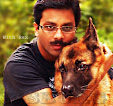Here's a little information about a rare kind of aquarium fish - Bluestreak cleaner wrasse. Aquarium lovers will fall in love of the electric beauty of this fish. This is one of those immensely beautiful species of cleaner wrasse that are found on coral reefs in the Indian Ocean. Marine aquarists will surely love this wonderful fish.
Bluestreak cleaner wrasse
Labroides dimidiatus
Family: Labridae (Wrasses)
Distribution: Indo-Pacific, Red Sea and East Africa to the Line, Marquesan, and Ducie islands, north to southern Japan, south to Lord Howe and Rapa islands.
Description: The Common Cleaner Wrasse is also known as the Bluestreak Cleaner Wrasse Inhabits the coral rich areas of inner lagoons and sub tidal reef flats to seaward reefs and can grow up to 3.9 inches. The Common Cleaner Wrasse has different color patterns; some are dark in color with a silver stripe, while others are white with a dark band and a bright yellow spot at the tail. The Cleaner Wrasse is well known for its cleaning behavior, it establishes a cleaning station. A protogynous hermaphrodite Stays in these stations where other fish come to be cleaned of unwanted parasites and develops a symbiotic relationship with the other reef fish by cleaning them. The cleaner wrasses begin their lives as females of a group of 6-8 cleaner wrasses with one male, the rest are females or juveniles. The dominant female changes its sex when the male dies, an phenomenon known as sequential hermaphroditism. With a most intriguing dance these are amazingly beautiful specimen in an aquarium but like all other Cleaner Wrasse the sustainability in captivity is very less. This is a high maintenance fish. This fish has Medium resilience, minimum population doubling time 1.4 - 4.4 years
Environment: Cleaner Wrasse needs a tank of about 30 gallons or more with abundance of space to hide and swim. It relishes gravel or sand. Water quality should be high with 1.020-1.025, pH 8.1 - 8.4 and Temperature should preferably be 72 - 78° F.
Feeding: Common Cleaner Wrasse is a carnivore fish, it prefers diets consisting of chopped sea foods, brine shrimp, and live black worms. It should be fed at least three times a day.
Behavior: They are peaceful in nature. It usually swims singly, in pairs, and in groups. Some adults solitary and territorial
Compatibility: Cleaner wrasse develops a symbiotic relationship with the other tank mates. Kept together they develop compatibility with the tank inhabitants.
Monday, March 5, 2012
Subscribe to:
Comments (Atom)









